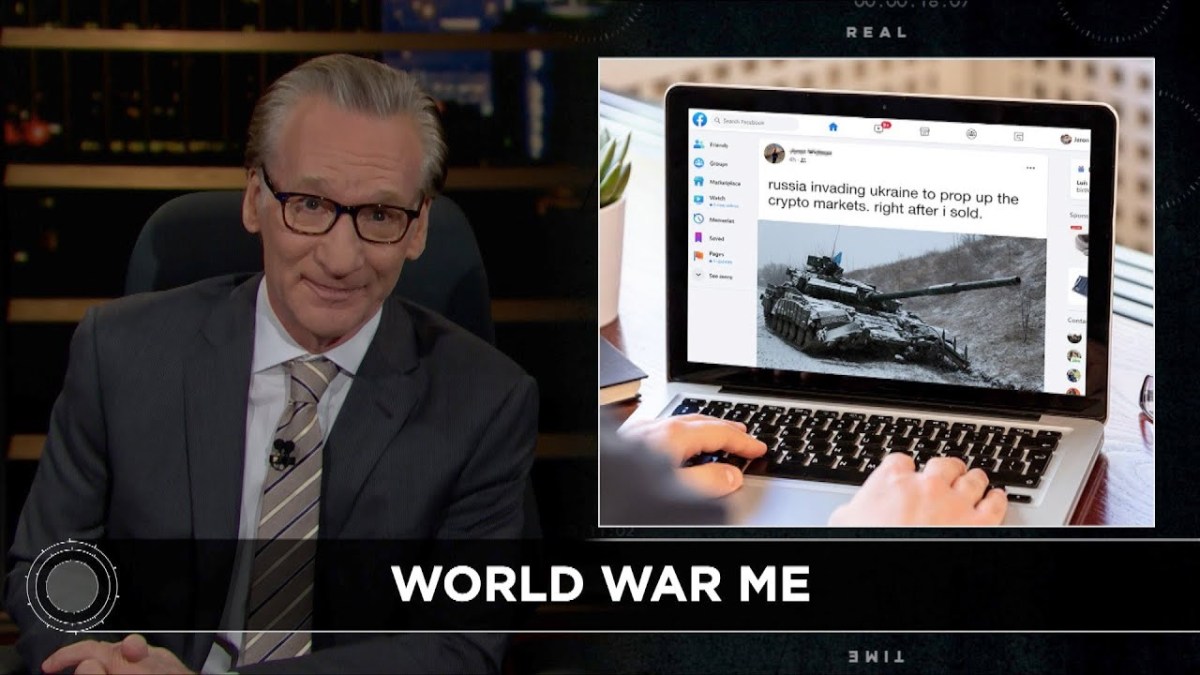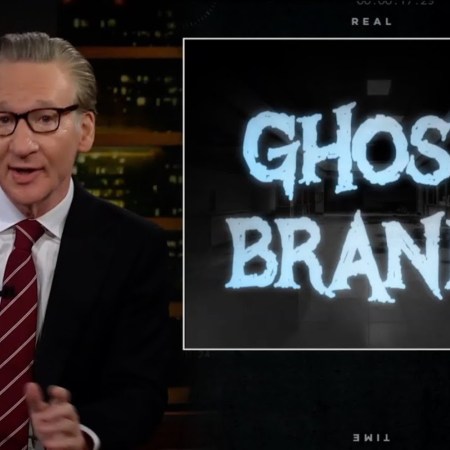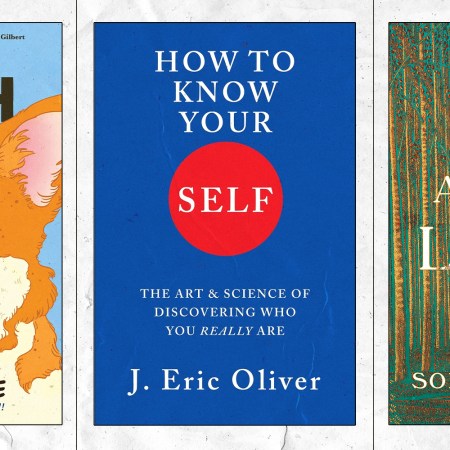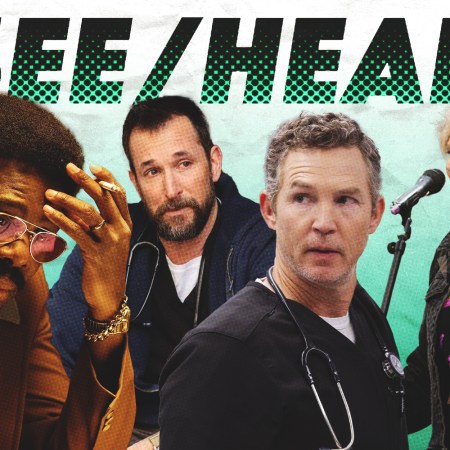Watch enough Real Time With Bill Maher episodes over the last year or two and you’ll notice a few themes coming to the forefront. Perhaps the most resonant of them is Maher’s argument against political polarization — namely, that there’s going to need to be some sort of partisan reconciliation along national lines for the nation to heal.
That theme was in abundance on last night’s episode. After a quicker-than-usual monologue in which Maher — unsurprisingly — alluded to the studio audience’s masklessness (“Let’s go back to when I thought Fauci was a type of expensive handbag.”), he brought on his first guest: Kenneth Branagh, to discuss the acclaimed Belfast, which drew on Branagh’s own experiences growing up in Belfast during the Troubles.
Maher gave a quick geography lesson to set up the history of the film for Americans unfamiliar with it. Branagh discussed the scale of the effects of the Troubles on Belfast, noting that it was the “biggest displacement of a population in a European city since the end of the Second World War.”
It was here that Maher brought up the sense of tribalism within the US that he’s been returning to in recent episodes, and around which he saw parallels in Branagh’s experiences. Maher asked the question: how do you peacefully interact with people whose beliefs are markedly different from your own?
“In the middle, there’s a lot of real people with challenges to get through the day,” Branagh said, which led both men to expound on this. Maher then asked Branagh why he’d chosen to make this film now. Branagh said that his family never spoke of that period after they left Belfast. He continued, saying that the legacy of the events — of being told he couldn’t play with a Catholic friend of his when growing up — had stayed in his mind, and eventually led him to write the film.
Maher then asked Branagh if he thought the Troubles could begin again. Branagh cited the legacy of the Good Friday Agreement, but said that it’s a peace that “has to be won every day.” He was encouraged by the experiences of a generation of people who had been raised on peace, and might be invested in maintaining it. But he also spoke ruefully about “fixed positions where you choose not to understand what someone opposite you is trying to say.”
For the panel, Maher was joined by Batya Ungar-Sargon (author of Bad News: How Woke Media Is Undermining Democracy) and Frank Bruni (author of The Beauty of Dusk: On Vision Lost and Found). This seemed like a microcosm of Maher’s point about coexistence: could the author of a book critical of “woke media” and a longtime New York Times contributor be civil?
Not surprisingly, Russia’s invasion of Ukraine was the first topic to come up. Maher compared Putin to Trump — specifically, that both view themselves as a kind of “national savior.” Bruni pointed out that Vladimir Putin’s efforts to do so were increasingly ruinous. Maher echoed this, observing that even with governmental control over media within Russia, Russians are still aware of what’s happening, and they’re unhappy about it.
Ungar-Sargon was more skeptical, noting that Russia isn’t a democracy. “What would it help for the Russians to know more?” she asked. Both Maher and Bruni seemed incredulous to this point, and Maher noted that in Russia, there is a history of popular uprisings overthrowing the government Ungar-Sargon’s position was difficult to parse, and seemed to be that the U.S. and NATO weren’t giving Putin enough of a chance, even as she criticized what he’d been doing as terrible.
From there, the conversation shifted to a broader discussion of energy independence and global oil markets. Maher expressed frustration over the inability of the American left and right to reach a “grand bargain” on energy — something that might include both green energy and nuclear power.
The panel’s second half focused in on Ungar-Sargon’s book and her criticisms of the media. Her argument centered around the abandonment of the working class, and the idea that journalism had gone from a working-class profession to more of an elite one. Maher seemed skeptical of some of her assertions — such as that the idea of journalists with college degrees is a bad thing.
Ungar-Sargon went on to argue that the “woke revolution” coincided with the rise of paywalls. What seemed curious about her argument was a kind of economic elephant in the room — namely, the loss, over the years, of both local newspapers and jobs in media. Ungar-Sargon didn’t bring that up, however — and it felt like a worrying omission.
Bruni cited the areas where he agreed with Ungar-Sargon, but seemed unconvinced that her argument regarding “wokeness” fit with the rest of her argument. He went on to point out an shift in the industry as a whole — namely, that news consumers are also seeking out work that they agree with, as opposed to that which doesn’t necessarily validates their views.
Eventually, a discussion about the media’s coverage of recent issues— and the New York Times’s pandemic coverage especially — turned heated. Ungar-Sargon argued that the NYT’s pandemic coverage had been lacking in focusing on the struggles of working people; Bruni countered by pointing out that, no, it had actually focused on that quite a bit.
The two guests were more civil by the time Overtime began. The bulk of the segment covered Florida’s “Don’t Say Gay” bill. “My main concern, as a gay man who advocates for gay rights, is not that second-graders know who Harvey Milk is,” Bruni said. But he went on to express skepticism of the bill as a whole.
New Rules found Maher dunking on Vladimir Putin and, even more, Tucker Carlson. He expressed his frustration over news of the discovery of Endurance. “Where did you think we’d find it?” he asked. “The Short Hills Mall?”
The bulk of the segment had a simple message: “Don’t make World War III all about you.” Maher spoke about people “making it about your thing” when it’s really not. He noted that some Democrats and Republicans each blamed it on the other party’s president, which led to a kind of apex — namely, Donald Trump Jr .tweeting about how this is somehow all Hunter Biden’s fault. (As Maher pointed out, it’s not.) And while there seemed to be some bothsidesism present, that seemed to be more about the examples chosen than anything else.
Maher compared this tendency to the time Justin Bieber signed the Anne Frank House’s guestbook. “Ukraine is not mostly about your pet grievances,” he said. And he cited an example from his own life to make the point hit home. “My pet cause is PETA, the People for the Ethical Treatment of Animals,” he explained. “But I don’t think Ukraine got invaded because we haven’t neutered enough cats.”
Thanks for reading InsideHook. Sign up for our daily newsletter and be in the know.


















